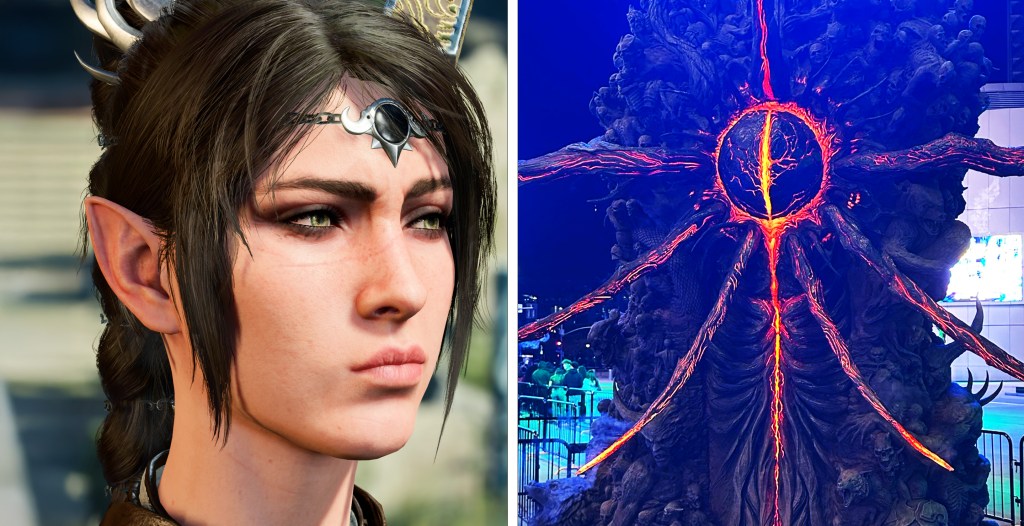Pictures from a crowded music festival in Wuhan, China set the internet ablaze last week.
Many foreign observers expressed outrage at the lack of social distancing in the packed pools, where thousands of party-goers stood shoulder-to-shoulder without masks.
Videos by VICE
“Virus? What virus,” remarked AFP fact checker Rachel Blundy on Twitter.
“China is holding massive pool parties while New Yorkers aren’t allowed to go to a gym and exercise,” tweeted U.S.-based doctor David Samadi. “Something is very wrong here.”
China defended the crowded event, claiming that it indicated Wuhan’s “strategic victory in the fight against the pandemic.” The Wuhan Maya Beach Water Park said it took precautions to ensure safety at the event by conducting temperature checks and capping the number of visitors at half capacity.
Although the event prompted confusion as much of the world continues to battle the ongoing coronavirus pandemic, Wuhan residents were quick to praise the party as proof of the city’s resilience.
“It’s easy to look at the pictures of the pool party and pass it off as Chinese people being socially irresponsible,” business executive Gan Zhixiu told VICE News.
“But do not forget how it must have felt like for all of us actually living in Wuhan who were the first people in the world to experience such unsettling beginnings of an unknown and dangerous virus that was emerging and then being forced under state lockdown in our homes.”
Wuhan, the sprawling capital of central China’s Hubei province home to about 11 million residents, was the first place hit by the coronavirus in December 2019. In January, the Chinese central government imposed a sweeping 76-day lockdown on the city and its surrounding area—seen by the rest of the world as an unprecedented move at the time. The lockdown was finally lifted on April 8.
“The rest of the world didn’t believe us that an epidemic was unfolding,” Gan said of the lockdown that she and her family endured.
Music festivals, live performances, outdoor markets and cultural events were previously common in Wuhan. Before its association with the initial coronavirus outbreak, Wuhan was known to some as China’s punk music capital.
“Wuhan is very vibrant with its own exciting subcultures,” 23-year-old university graduate Valerie Chan, who was born and raised in Wuhan, told VICE News. “All of that was subdued because of the virus.”
Chan said that seeing images from the Maya Beach pool party was a reassuring sign after months of strict lockdown.
“To see events being held once again is actually a sign of life returning to normal,” she said. “I didn’t think much of the controversy around the pool party pictures because for us in Wuhan and elsewhere in China, they showed how life used to be.”
After Wuhan lifted its lockdown, the city reported no new cases of the coronavirus until May 11, after which the city began comprehensive testing of all of its residents to prevent another outbreak.
Since its initial detection of the coronavirus, Wuhan has reported 50,340 cases and 3,869 deaths. It has not detected a new coronavirus case in three months.
Chan shared photographs with VICE News of the “new normal” in Wuhan and provided insight on what life is like after coming out on the other side of the pandemic. The photos showed people in malls, and Chan without a mask as she walked the streets.
“People were scared at the beginning and the city became associated with the coronavirus,” she said.
“But the view that my friends and I have now is that life has largely returned to normal. There isn’t a sense of widespread panic or a lingering shadow from the virus hanging over us anymore—but it isn’t because we are letting our guards down. There just haven’t been reports of new coronavirus cases in Wuhan for a long time,” she said.
She added that she now rarely wears face masks when she goes out to meet friends or run errands.
“There are still routine health and safety checks, but they aren’t as strictly enforced anymore. Bars and nightclubs have reopened and there are markets for families and street dance competitions too. You can venture out onto the streets and see food vendors and buskers in the alleys again,” she said proudly.
“A lot of local residents can participate in outdoor activities freely again. People feel that it’s safe to go out and are more at ease about gathering.”
China announced a temporary ban on inbound tourism in March, citing the “rapid spread of Covid-19 across the world.” And with international tourism stalled, the Chinese government is banking heavily on domestic tourism to revive the economy.
Cities across China have recently hosted large scale events, according to The New York Times. A week-long beer festival was held in Wuhan days after the controversial pool party and a gaming convention that attracted thousands took place in Shanghai according to The Times.
“Wuhan, the city where COVID-19 was first reported and the one hit hardest by the virus, is now welcoming an influx of tourists and its economy is reviving,” read a front-page editorial in the Chinese state tabloid Global Times after news of the Maya Beach party went viral_.”_

While other countries are still experiencing growing numbers of coronavirus cases, and researchers have noted the potential long-term impacts of the COVID-19 disease, doctors in Wuhan have praised the city’s outlook.
A visiting doctor from the Wuhan Asia Heart Hospital who identified himself as Huang Wen told VICE News that Wuhan residents are taking their health “more seriously” now as compared to a year ago before the virus hit.
“I see patients who come in for treatment even if it’s for milder illnesses like the common cold. There are also people I know who were previously hard smokers and have cut down on their cigarette habits or quit completely. These are positive signs,” he affirmed.
Singapore-based infectious disease expert Paul Tambyah expressed optimism on global efforts in combating the coronavirus and said the Wuhan pool party was likely organized with great care.
“I don’t think an event like that would have been done casually,” he told VICE News. “Scientists and public health authorities in Wuhan would have made their calculations and worked out that the risk of mass events is now so low that they can be held safely.”
Tambyah also highlighted other examples of places, like Taiwan, where life has largely returned to normal.
Still, he cautioned that Wuhan and other cities shouldn’t get too comfortable just yet.
“We will know whether or not Wuhan was right quite soon,” he said. “Because if we do not see a spike in COVID-19 cases in Wuhan within two weeks, it will send a powerful message that it may be safe to hold such mass events once locally transmitted cases drop below a certain level and imported cases are virtually eliminated.”
Gan says that she often looks back on the year Wuhan had and feels a sense of relief.
“China and the rest of the world haven’t conquered the virus completely,” she said. “But I speak for many of us in Wuhan when I say that we are happy to be able to move past the trauma. The important thing is that we survived.”
More
From VICE
-

3I/ATLAS -

Isaac Hayes (Photo by Anthony Barboza/Getty Images) -

Screenshot: Larian, X @shinobi602 -

Gene Siskel and Roger Ebert (Photo by Norm Staples/Getty Images)
